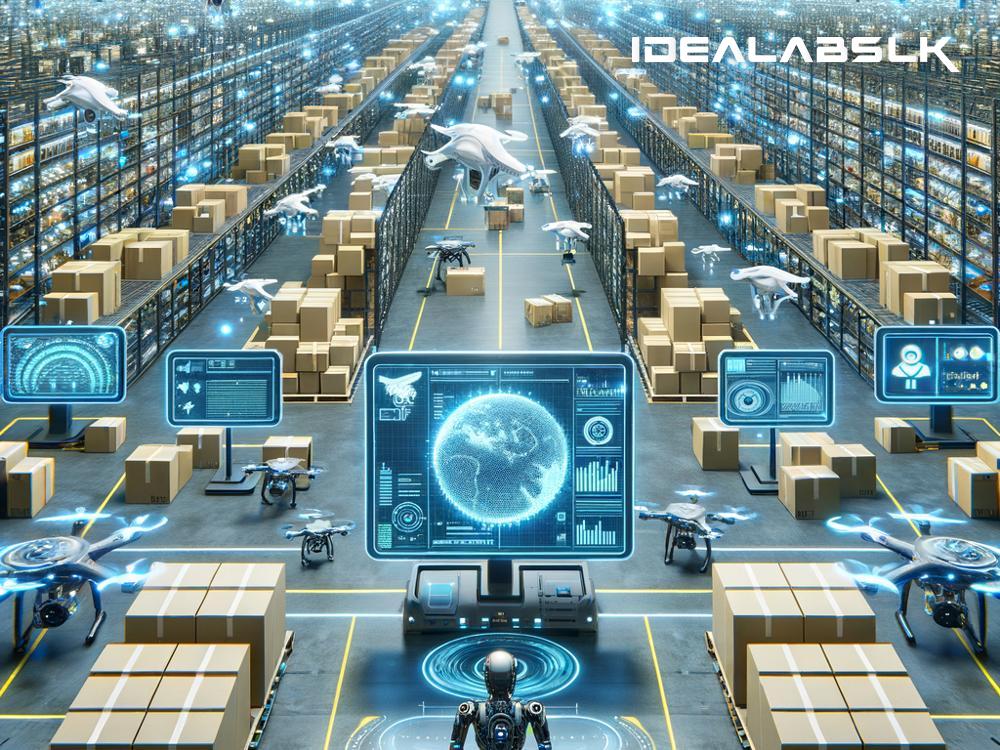How Artificial Intelligence Will Transform Future Logistics
In the fast-moving world of today, getting things from point A to point B not only has to be speedy but also smart. That's where Artificial Intelligence (AI), a tech buzzword you've probably heard a lot about, comes into play, especially in the field of logistics. Logistics, simply put, is the complex coordination of moving goods, and it's a field ripe for innovation. Let's dive into how AI is set to revolutionize this sector, turning complexities into streamlined processes.
The Smart Planning Cap
First up is planning – a stage that's all about making decisions. Imagine you're playing a giant game of chess where the pieces are trucks, ships, and cargo planes. Now, imagine having a super-smart computer assistant that can predict your opponent's (in this case, logistics challenges) moves even before they make them. That's AI for you. It can analyze vast amounts of data from past shipments, weather reports, and traffic patterns to suggest the best routes and transportation methods. This doesn't just shave off hours or even days in shipping time but also significantly cuts down fuel consumption and costs.
Robot Helpers and Automated Warehouses
Warehouse operations are getting a futuristic facelift thanks to AI. Instead of humans walking down aisles upon aisles of goods, picking items off the shelf for your online order, robots can do this more efficiently and error-free. These aren't just any robots; they're AI-powered machines that learn the quickest paths through the warehouse and can operate round the clock. This automation speeds up the process from when you click "buy" to when the package arrives at your doorstep.
The Eyes on the Road: AI in Transportation
Transportation in logistics is getting smarter, too. Self-driving trucks and drones are no longer a thing of sci-fi movies. They're becoming a reality, thanks to AI. These vehicles can navigate the best routes in real-time, avoiding traffic jams and road closures that human drivers might run into. More than just autonomous, these vehicles are also safer and more sustainable, promising a future where logistics has a smaller carbon footprint.
The Demand Forecasting Crystal Ball
One of the most challenging aspects of logistics is predicting demand. Stock too much, and you waste money on storage for unsold goods. Stock too little, and you miss out on sales. AI acts like a crystal ball, analyzing trends from past sales data, social media, and even weather forecasts to predict what will be hot and what will not. This means businesses can be more proactive, stocking up just in time for a surge in demand and avoiding overstock.
Transparent Tracking for Peace of Mind
Ever ordered something online and then obsessively checked the tracking until it arrived? AI is making this process more transparent and accurate. By assimilating data from various sources, AI can give you real-time updates on where your package is and even predict the exact hour it will arrive. This level of detail not only keeps customers happy but also streamlines the logistics process, identifying and resolving any delays almost immediately.
Sustainable Logistics: A Greener Tomorrow
Perhaps one of the most significant impacts of AI in logistics is on sustainability. By optimizing routes, predicting demand, and automating warehouses, AI is making the entire logistics chain more eco-friendly. Fewer unnecessary shipments mean less fuel consumption and carbon emissions. Smart warehouses reduce energy usage, and efficient packing algorithms mean less waste. AI is paving the way for a logistics industry that not only delivers goods faster but also takes care of our planet.
The Future Is Now
The transformation of the logistics industry through AI is not a distant future concept; it's happening now. From planning and warehousing to transportation and sustainability, AI is streamlining operations, reducing costs, and enhancing customer satisfaction. As we move forward, the integration of AI in logistics is only set to deepen, making it an exciting time for the industry. And for us consumers? It means getting what we want, when we want it, in a smarter and greener way. The future of logistics, powered by AI, is indeed bright, promising a world where logistics operates like a well-oiled, AI-driven machine.

